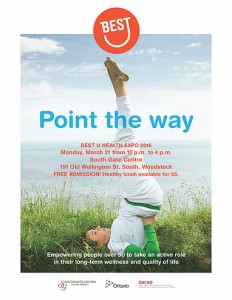 For centuries people have been drinking tea, both socially and medicinally. Formal research is somewhat limited in this area, but the traditional uses and case studies have encouraged this trend of tea drinking to be passed down throughout the years. In my opinion, the health benefits that can be acquired from tea are more than just from the herb that is used. Medicinal properties can extend from the time spent consuming tea with a friend, or even the act of preparing a cup of tea. In my opinion, the act of making a medicinal tea for one’s ailments could have a great placebo effect in itself, not to mention the health benefits that you would get from the tea.
For centuries people have been drinking tea, both socially and medicinally. Formal research is somewhat limited in this area, but the traditional uses and case studies have encouraged this trend of tea drinking to be passed down throughout the years. In my opinion, the health benefits that can be acquired from tea are more than just from the herb that is used. Medicinal properties can extend from the time spent consuming tea with a friend, or even the act of preparing a cup of tea. In my opinion, the act of making a medicinal tea for one’s ailments could have a great placebo effect in itself, not to mention the health benefits that you would get from the tea.
Much of the research regarding tea consumption and health benefits looks at green or black tea. However, some of the findings below relate to tea consumption as a practice and not necessarily a specific type of tea.
Bone Health
Research has shown that among daily tea consumers, bone density was 2.8% thicker than those individuals who did not drink tea on a daily basis. In addition, the tea drinkers experienced far less bone loss than compared to the non-tea drinkers (1% versus 4% respectively).
Brain Health
Not only has tea been shown to impact cognition, but mood as well. Researcher found that individuals who consumed tea on a regular basis (i.e. daily), were less likely to be depressed. In regards to cognition and risk of dementia, individuals who consumed tea daily were at a decreased risk of cognitive decline or impairment. In addition, regular tea consumers have been shown to have a faster reaction time than those who did not consume tea regularly.
Cancer Prevention
Some research has shown that daily consumption of tea can decrease the risk of and protect against various forms of cancer, including colon, esophageal, and lung cancer.
Heart Health
The antioxidant capacity of tea makes it quite beneficial for heart health. Specifically, research has shown that those individuals who drank tea on a regular basis had lower blood pressure than those who did not. The more tea that individuals drank, the less likely they were to have high blood pressure. This effect was noted in green tea or oolong consumption. In addition, regular consumption of green or black tea has been shown to decrease risk of cardiovascular disease.
Other
In addition to the health benefits mentioned above, daily tea consumption has been shown to potentially protect against bacterial infections, dental cavities, and kidney stones. Tea may also present a positive benefit on decreasing body weight and body fat overall. In addition, tea consumption was suggested to decrease the risk of developing type II diabetes when consumed at 3-4 cups per day.
As some of you may know, I do offer organic, custom teas to my patients as a therapeutic tool to promote healing. If you are interested in having a custom made tea suited to your individual needs, consider booking an appointment with me to help you address your health goals.
Have you benefited from reading this blog? Know someone that would benefit as well? Share, Like, Comment, or Tweet this article, and let me know what you think.
Some of the information provided above may not be appropriate for everyone, please consult with your doctor before trying any of the above. If you are interested in Naturopathic Medicine and wanting a different approach to your health care needs, contact Dr. Elisha Cook ND by calling 519-537-7058 and book your appointment today!
References:
http://nutritionreviews.oxfordjournals.org/content/58/1/1.abstract
http://ajcn.nutrition.org/content/86/4/1243.short
http://archinte.jamanetwork.com/article.aspx?articleid=217219
http://www.ajol.info/index.php/tjpr/article/view/14660
http://www.sciencedirect.com/science/article/pii/S0098299710000737
http://link.springer.com/article/10.1007/s10654-005-0148-2#page-1
http://ajcn.nutrition.org/content/88/1/224.short
http://ajcn.nutrition.org/content/88/1/224.short
http://archinte.jamanetwork.com/article.aspx?articleid=485133



